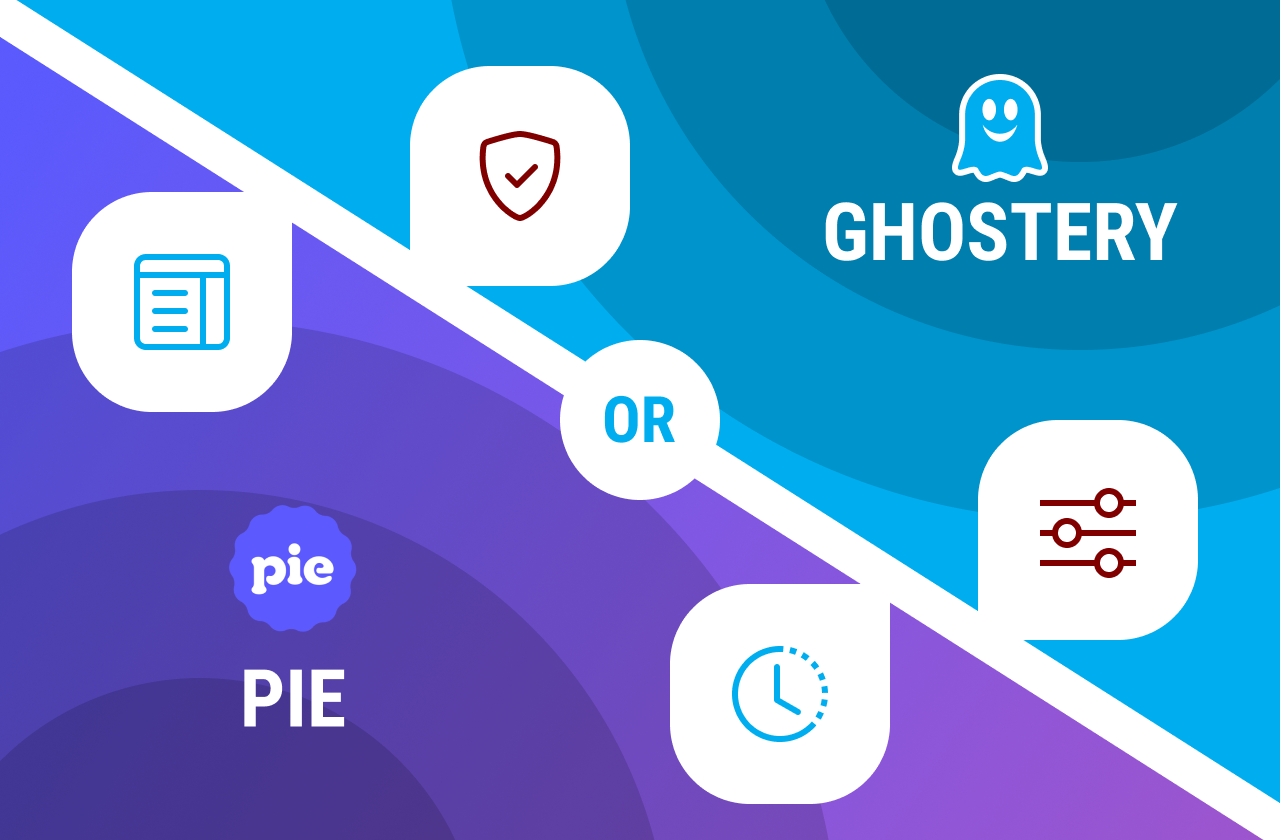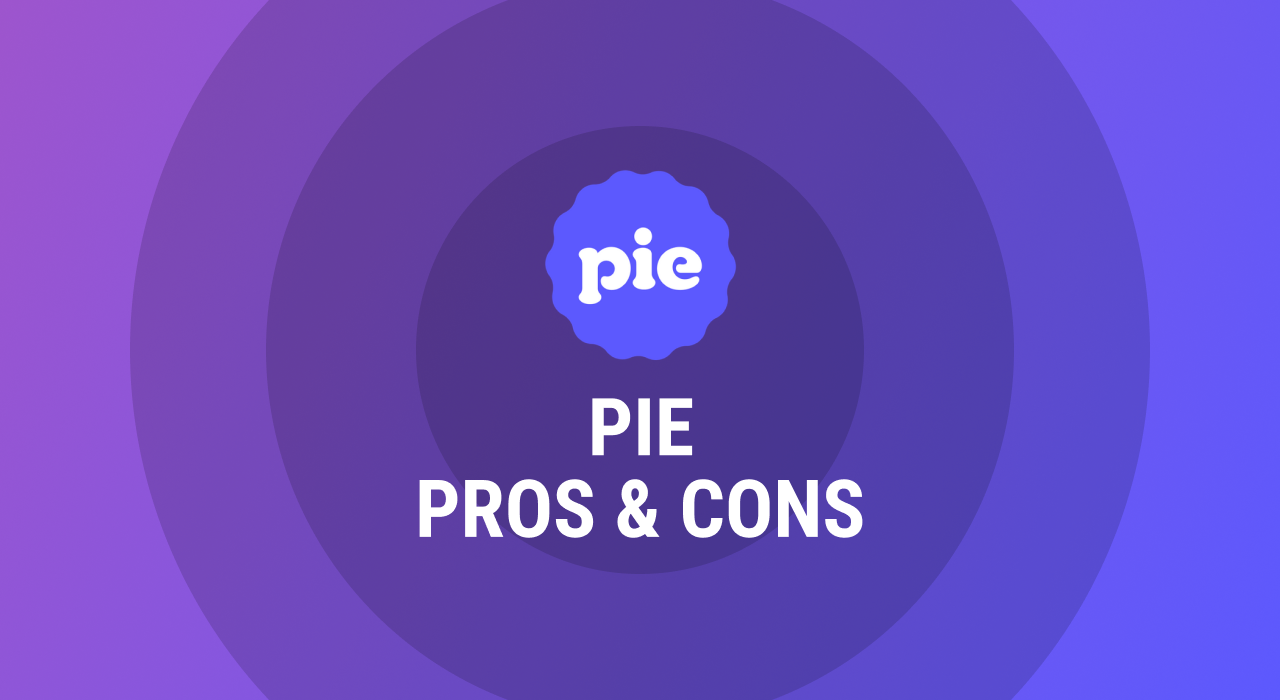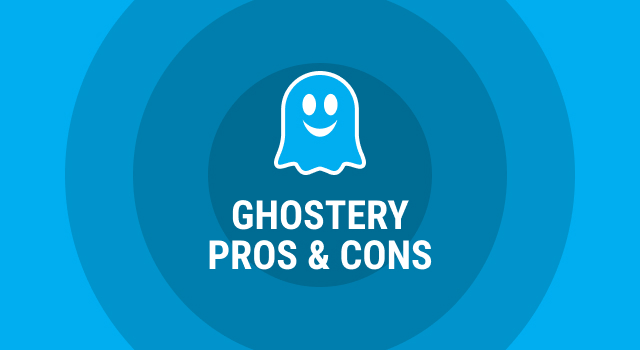Ghostery and Pie Adblock - A Comparison
Ad blockers are essential for a cleaner web, but their philosophies differ. Pie Adblock pays users to view certain ads, blending ad blocking with a rewards system, while Ghostery is built on the belief that your personal information is yours alone. By blocking both ads and hidden trackers, Ghostery ensures your privacy comes first. This guide compares these two approaches to help you decide which best fits your values.
What is Pie Adblock?
Pie Adblock is a browser extension that blocks common online annoyances like pop-ups, banner ads, and video ads on sites like YouTube and Twitch. The team behind the popular shopping extension Honey developed it. (More on that in a bit.)
What makes Pie Adblock different is its optional "Rewards for Ads" feature. You can choose to see a limited number of vetted ads from their partners. For each ad you view, you earn points that you can redeem for cash or gift cards. This extension gives you control over your ad experience while letting you earn a little from it.
What platforms does Pie Adblock work on?
Pie Adblock works across several major platforms. However, it is primarily available as a browser extension for desktop users.
- Google Chrome
- Microsoft Edge
- Opera
- Brave
- Safari (iOS only)
Pie works mainly on desktop browsers, letting you block ads and earn rewards on your computer. So while it offers a version for Safari on iPhone, you won't find a dedicated app for Android or a system-wide ad blocker for mobile devices. This means your protection (and earnings) on mobile is limited.
Is Pie Adblock legit?
Since Pie Adblock promises to pay you for viewing ads, you might ask if it's legitimate. The rewards system is real, though you won't earn much. You can typically expect to make around $1 to $2 per week with regular use by enabling the Fair Ads and Instant Rewards features. The system works by showing you ads from Pie's partners, and you accumulate points that you can cash out.
The founders of Pie Adblock also created the successful shopping tool Honey, which may — or may not — give the product some credibility in your eyes. The extension is also transparent about how it uses your data for the rewards program and has a high rating on the Chrome Web Store.
However, its business model relies heavily on its companion extension, Pie Shopping, which it promotes aggressively during installation. This focus on affiliate shopping revenue, combined with the permissions it requires, means you are trading your data and browsing habits for small cash rewards.
Pie with too much Honey
In 2024, the coupon extension Honey faced a major controversy when a YouTuber accused the company of swapping affiliate links for its own benefit, sometimes leaving users with worse deals. Ryan Hudson, Honey's co-founder, defended the company on Reddit. He denied any intentional wrongdoing and pointed to complicated affiliate marketing mechanics as the source of the problem.
However, many felt his explanation failed to address whether Honey harmed shoppers and creators by overriding discounts and redirecting affiliate revenue. The issue gained enough attention that Google updated its Chrome Web Store policy, which banned the exact kind of affiliate link swapping that Honey was criticized for.
Hudson's new company, Pie Adblock, is staffed mostly by former Honey employees. This history might lead some users to take a closer look at Pie’s data practices.
How does Pie Adblock compare to Ghostery?

User interface
Both extensions have clean, easy-to-use interfaces. However, Pie Adblock’s settings focus heavily on its rewards and shopping features. When you install the ad blocker, you have to decline its companion shopping extension twice. Inside the settings, you will find more prompts to create an account and install the shopping extension, with a "Wallet" feature displayed prominently.
Ghostery takes a different approach. Our dashboard focuses completely on your privacy. We show you a detailed breakdown of all the trackers on each website you visit. From there, you have immediate control over any tracker you choose.
Control options
The two extensions offer different levels of control. Pie Adblock provides simple toggles to block ads and cookie notices, and whitelist websites. The extension also comes with a pre-set list of "auto-paused sites" where the ad blocker is automatically disabled. These are sites where Pie causes site issues.
Pie lets you allow ads for creators that you subscribe to on YouTube and Twitch. Otherwise, you cannot add your own filter lists or make other advanced customizations.
Ghostery blocks everything by default and gives you much more granular control should you need it. You can unblock entire categories of trackers, pause the blocker when you need to, or add specific sites to your trusted list. We also provide detailed information about every tracker we find. This info shows you exactly which company is collecting your personal information and gives you the power to stop them.
Installation
When you first install Pie Adblock, it detects any other ad-blocking extensions you are running. Pie then requires you to disable other adblockers to complete the setup. This approach is restrictive if you prefer to use multiple tools for protection. Pie Adblock forces you to use it exclusively.
At Ghostery, we advise against running multiple ad blockers at once. Using several can create conflicts that break websites or harm performance. However, we trust you to configure your browser the way you want.
Privacy
Privacy is the biggest difference between Ghostery and Pie Adblock. Our main goal at Ghostery is to protect your privacy by blocking the thousands of trackers that follow you online.
Pie Adblock may block some basic trackers, but it is not built to be a privacy tool. Plus, its business model depends on a separate shopping extension that needs to track your activity to work.
Speaking of which, you should check out their privacy policy. Pie could provide more specific details about third-party data sharing agreements and lower data retention periods, but overall, the policy is fairly privacy-respecting.
Speed
Both ad blockers can make your web browsing faster. They block ads and other nuisances that slow down page load times.
Pie Adblock is a lightweight extension that uses minimal computer resources. Ghostery also improves your speed by cutting out data-heavy ads and trackers.
Both extensions offer a similar benefit of a faster, less cluttered browsing experience.
How We Test Ad Blockers
To identify which ad blockers truly perform best, we evaluate each one through a consistent hands-on testing process. Our goal is to measure not only how well they remove ads, but how they balance usability, privacy, transparency, and performance.
1. User interface and ease of use
A clean, intuitive interface is key. We assess how easily users can navigate settings, access reports, and adjust protection levels. An effective ad blocker should make privacy management simple and clear, without unnecessary prompts, upsells, or distractions.
2. Control and customization
Different users need different levels of control. We test whether an ad blocker lets you fine-tune protection, add or remove filter lists, pause blocking temporarily, or whitelist specific sites. Granular control is a sign of thoughtful design and respect for user choice.
3. Installation and compatibility
We review installation flows. Some ad blockers like Pie Adblock require disabling competitors; others integrate smoothly alongside other privacy tools. We note how flexible each one is during setup.
4. Privacy and transparency
Privacy is central to our evaluation. We prioritize open-source ad blockers whose code can be independently reviewed, and those using trusted community blocklists like EasyList, EasyPrivacy, or WhoTracks.Me. These shared resources are continually updated, offering strong and verifiable protection against new trackers.
5. Performance and speed
Finally, we measure how each ad blocker affects page load times and overall browsing experience. A well-optimized blocker should remove ads and trackers without slowing performance or breaking site functionality.
What are the pros & cons of Pie Adblock?

To help you decide if Pie Adblock is the right tool for you, we've summarized its strengths and weaknesses.
Pros
- Effective Ad Blocking: Pie successfully blocks a wide range of ads, including intrusive video ads on YouTube and Twitch.
- Cash Rewards Program: Pie Shopping offers a unique optional feature to earn cash rewards for viewing a limited number of vetted ads. It offers coupons and cashback, so that you can save money on shopping.
- Simple Interface: The extension is easy to use, with straightforward controls for managing ad blocking and rewards.
- Creator Support: Pie allows you to easily whitelist specific channels and websites to support content creators you value.
- Cookie Pop-up Suppression: Pie automatically suppresses annoying cookie consent notices for a smoother browsing experience
Cons
- Low Rewards: The cash rewards you can earn are minimal, typically around $1 dollar per week.
- Limited Privacy Protection: Pie lacks advanced privacy features and doesn't use comprehensive tracker-blocking resources.
- Data Collection: Pie collects data to serve ads and calculate rewards.
- Reputation Concerns: The team's stuff largely consists of former Honey employees, which may raise some doubts for privacy-minded users.
- Aggressive Upselling: The extension aggressively promotes its companion shopping extension during installation and within its settings.
- Lack of Customization: There are no options for advanced users to add custom blocklists or apply fine-tuned filtering rules.
What are the pros & cons of Ghostery?

Ghostery is built from the ground up to protect your privacy and declutter the web. Like any tool, it has its unique strengths and considerations.
Pros
- Advanced Tracker Blocking: Ghostery's primary strength is its industry-leading technology that identifies and blocks a vast array of trackers.
- Total Transparency: The intuitive dashboard shows you exactly which trackers are operating behind every site you visit.
- Customizable Control: You have the power to block all trackers or selectively allow specific ones.
- Open-Source and Trustworthy: Ghostery's commitment to transparency is backed by its open-source code, allowing for community review and trust.
- Comprehensive Platform Support: Available on all popular browsers and mobile devices, Ghostery provides consistent protection.
- Enhanced Browsing Speed: Ghostery significantly speeds up page load times by blocking resource-heavy trackers and ads.
- Granular Control: Allows users to selectively block or allow specific trackers or tracking categories.
Cons
- No Monetary Rewards: Ghostery focuses exclusively on providing a private and clean browsing experience, so it does not offer a cash-back or rewards program.
- Possible Learning Curve: While easy to use out of the box, unlocking Ghostery's full potential for granular control may take a moment to learn for new users.
Making the best adblocker choice: Ghostery or Pie Adblock?
If your main goal is to block most ads while earning a little cash back, Pie Adblock could be a fit. The browser extension provides solid ad blocking and a rewards system. However, you have to be comfortable with its shopping features, which track your activity to work. You will also see frequent prompts to install their companion shopping extension.
On the other hand, if you want to control your digital privacy, speed up your browsing, and see who is tracking you, Ghostery is the better choice. Our mission is to make the web more private for everyone. We give you powerful tracker-blocking tools, detailed control over your data, and we are transparent about how we operate.
With Ghostery, you won't earn cash rewards, but you will get a faster, cleaner, and more private internet for free.
As always, get in touch with our team if you have any questions.
FAQ
Does Pie Adblock block all ads?
Generally, Pie Adblock does a good job of handling ads, including blocking YouTube ads. It removes many common ad formats and can noticeably reduce interruptions while browsing. However, like all ad blockers, it does not block every ad on every site. Platforms regularly change how they deliver ads, and certain types of dynamic or highly obfuscated advertising may still appear. Its privacy protections are also limited because Pie focuses mainly on ad removal rather than blocking the trackers hidden inside ads. For most users, though, it provides solid everyday ad blocking performance.
How much does Pie Adblock cost?
Pie Adblock is free to use. In fact, Pie allows you to earn rewards by viewing ads as you browse. Instead of blocking everything by default, Pie’s system encourages users to keep certain ads enabled in exchange for small payouts. This makes Pie different from traditional privacy-focused ad blockers, which aim to remove ads and trackers entirely. While the rewards model may appeal to some users, it also means you may still see ads and share data with participating advertisers. For those who prefer uninterrupted, tracker-free browsing, this tradeoff is important to keep in mind.
Does Pie Adblock work on YouTube?
Yes, Pie ad blocker generally works on YouTube and can block many pre roll and mid roll ads. It offers solid performance for most users, though results can vary as YouTube frequently updates the way its ads are delivered. Like all ad blockers, Pie may experience periods where some ads slip through until filters are updated. It’s also worth noting that Pie focuses mainly on ad removal rather than privacy, so the trackers behind YouTube’s advertising ecosystem may still load. For everyday viewing, Pie ad blocker works reasonably well, but protection can be inconsistent over time.
Still have questions?
If there is anything you miss in Ghostery or have any questions, please drop a line to support@ghostery.com. We’re happy to talk to you anytime.